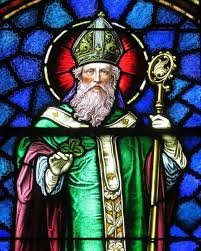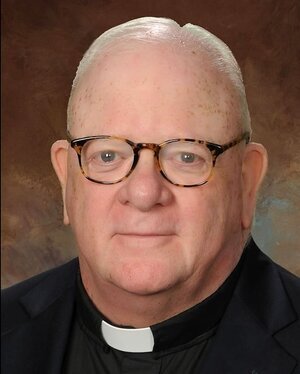Third Sunday of Lent Gospel Lk 13:1-9
Some people told Jesus about the Galileans whose blood Pilate had mingled with the blood of their sacrifices. Jesus said to them in reply, “Do you think that because these Galileans suffered in this way they were greater sinners than all other Galileans? By no means! But I tell you, if you do not repent, you will all perish as they did! Or those eighteen people who were killed when the tower at Siloam fell on them— do you think they were more guilty than everyone else who lived in Jerusalem? By no means! But I tell you, if you do not repent, you will all perish as they did!” And he told them this parable: “There once was a person who had a fig tree planted in his orchard, and when he came in search of fruit on it but found none, he said to the gardener, ‘For three years now I have come in search of fruit on this fig tree but have found none. So cut it down. Why should it exhaust the soil?’ He said to him in reply, ‘Sir, leave it for this year also, and I shall cultivate the ground around it and fertilize it; it may bear fruit in the future.
If not you can cut it down.’”
Salesian Quote
“Be patient with everyone, but above all with yourself; I mean, don’t be disturbed about your imperfections, and always have the courage to pick yourself up after a fall…Make a fresh start each day. There is no better way of growing in the spiritual life than to be always starting over again and never thinking we have done enough.”
-St. Francis de Sales (Letter CDLV to Madame de Flechere)
Reflection
Did you ever have a time in your life when something just wasn’t working? When you weren’t being your best? When a situation was just out of hand? I have and often, in these times, my attitude is.
In our culture, we don’t like junk. We don’t like things that don’t work, plants that don’t bloom, programs that don’t work, or people who annoy us and get in our way. And when something or someone falls into these categories, our first response is often that of the ruler in today’s Gospel: Throw it out and get rid of it.
But that’s not the gardener’s perception in our parable today (and remember after His resurrection, Mary Magdalene mistook the risen Christ for a gardener). The gardener says: “Let me fertilize it. Let me add stuff to it. Let me take care of it and nurture it and see what happens before we do anything drastic to it.”
In this parable, Jesus is telling us about the true nature of God: a God of compassion. A God of second chances who again encourages us and offers us the opportunity to keep trying, pick ourselves up, and continue walking forward, gently, patiently, and humbly with him.
May God be praised!
Fr. Michael E. Newman, OSFS
Vocation Director, Oblates of St. Francis de Sales
Pastor, Holy Family Parish Adrian




















































